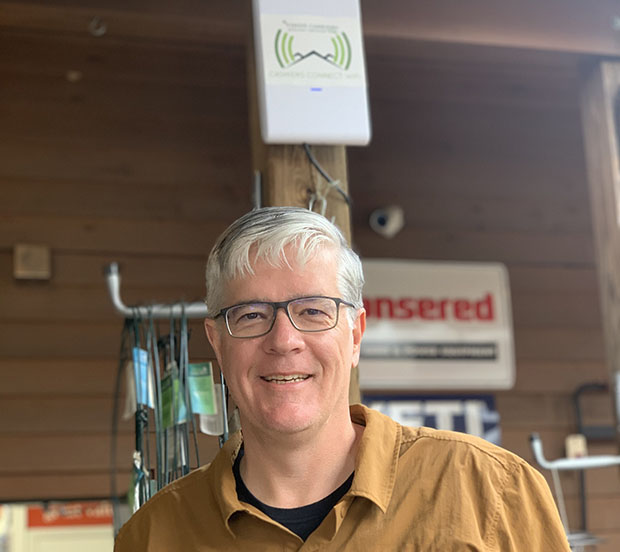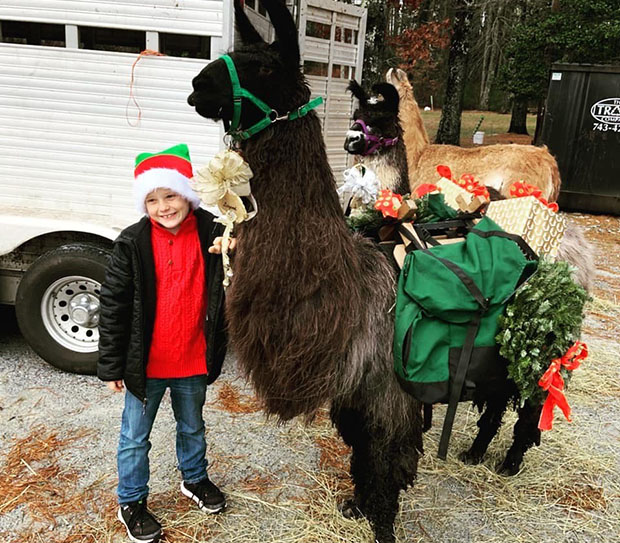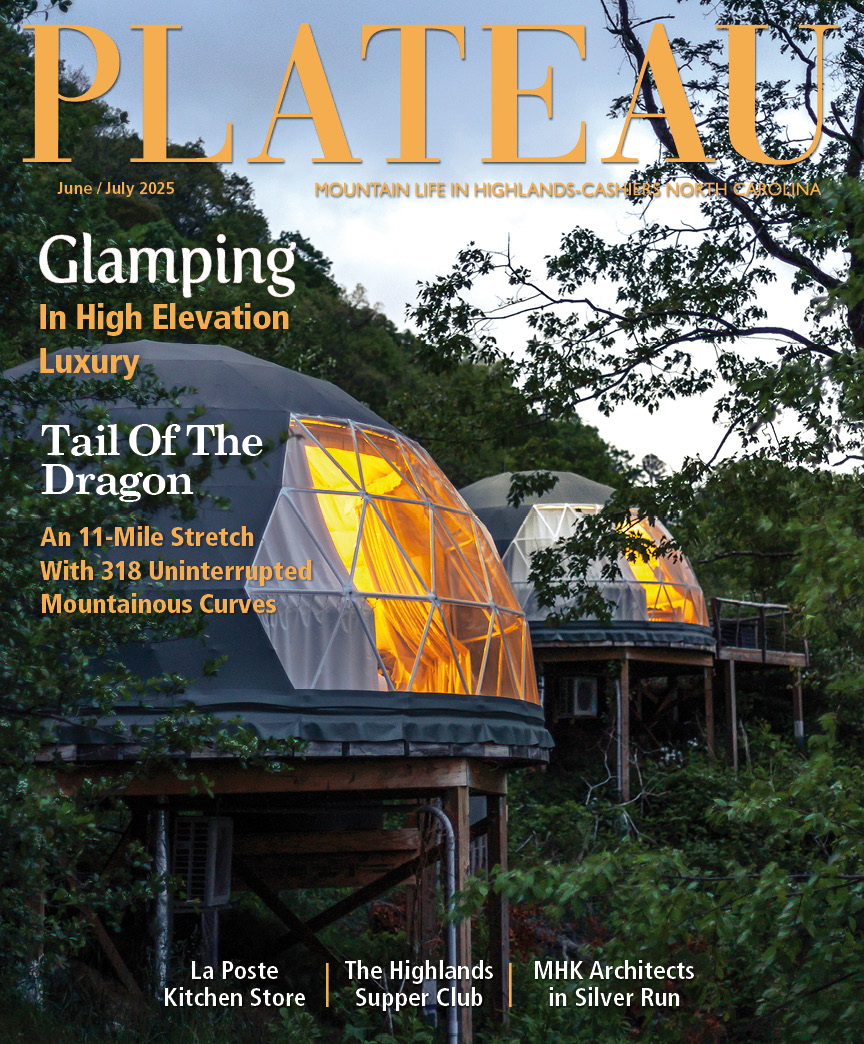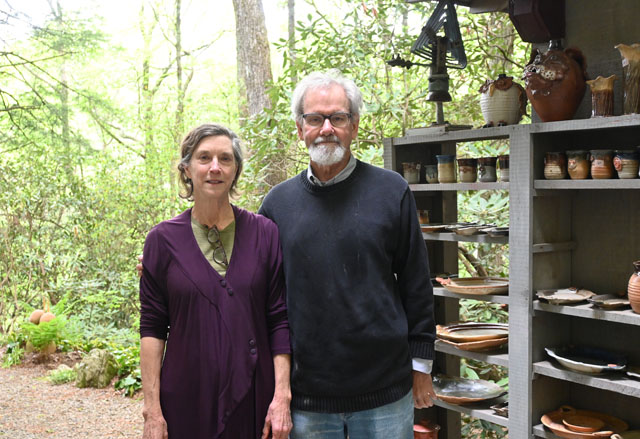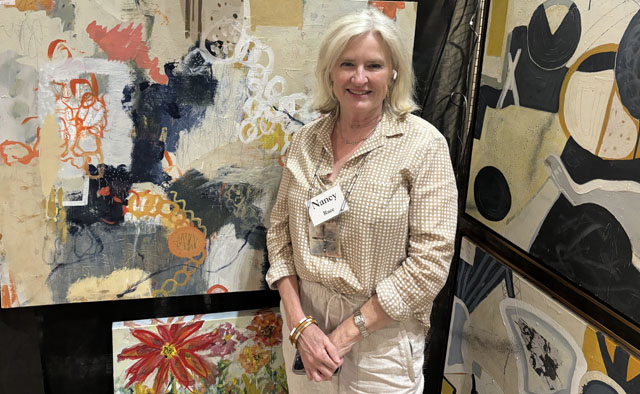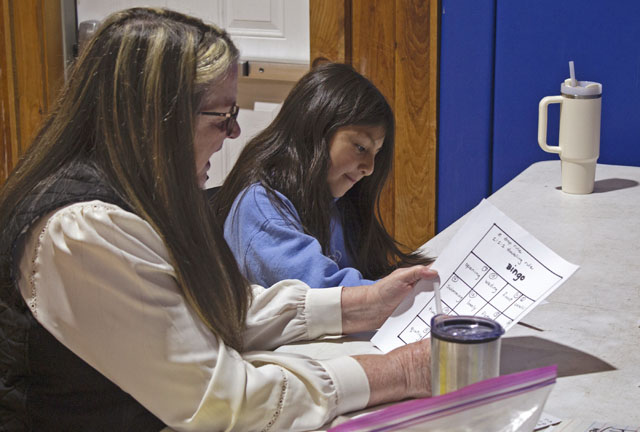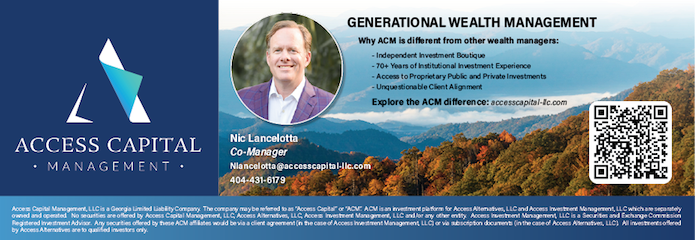Dedicated to the Plateau’s Future Leaders
04 Dec 2020
How Bonnie Potts leads the Macon County Literacy Council to build better readers—and better citizens
By Christa Miller
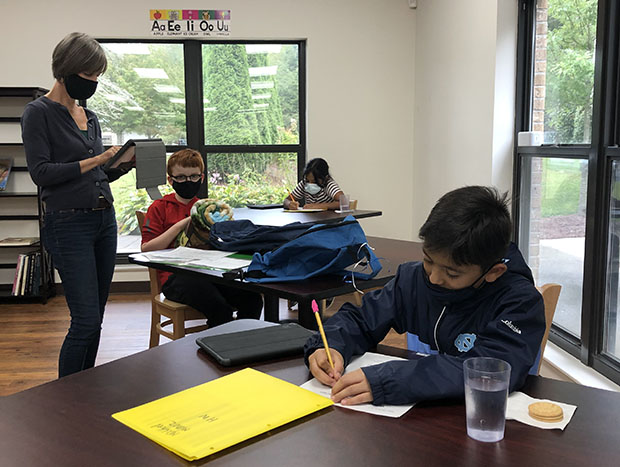
Literacy can challenge adults and children alike for a number of different reasons: un- or misdiagnosed learning disabilities, learning a second language in a new country, or lack of access to information. All can impact a person’s ability to progress in life.
Helping residents of the Highlands-Cashiers Plateau to overcome these challenges is the Macon County Literacy Council. In just a few years—under the leadership of executive director Bonnie Potts— the council has seen exponential growth in its after-school, English as a second language (ESL), and one-on-one tutoring programs.
“If you're not reading at grade level by third grade, your chances of being able to graduate high school go down dramatically,” says Potts, “because after third grade, you're expected to know how to read in order to learn the material.” Moreover, she adds, a parent who can’t read will have more difficulties helping their children through school. “And so that cycle will just continue.”
A Highlands, North Carolina native, Potts always wanted to work in the nonprofit sector. She got her first chance halfway around the world, in Ho Chi Minh City, Vietnam. There, working in marketing and development for the VinaCapital Foundation, Potts gained the experience she needed to continue her work closer to home—this time at The Bascom.
Both roles gave her the business perspective she needed to succeed as an executive director, learning how to plan and evaluate programs with a critical eye to see what worked, and what needed improvement.
Those were the skills she needed in her first months at The Literacy Council. “I really wanted to see these programs grow,” she recalls. “I think they have a huge impact on their students. And so my biggest priority was to identify the educational needs in the community, and then be able to address them.”
The council’s cohesive reading remediation approach relies on Highlands School teachers, who double as afterschool program staff. Community partnerships further shine through enrichment activities: hands-on art projects with The Bascom, science projects with the Highlands-Cashiers Land Trust, and physical movement with Yoga of Highlands all help with reading retention and overall academic success.
More space, more opportunities
When Potts arrived, The Literacy Council rented space in Highlands’ Peggy Crosby Center. As it expanded its reach, however, the council quickly outgrew that space. A building campaign raised the funds the council needed to move to a new location: the former Highlands post office.
From there, one of The Literacy Council’s founders, architect Jeff Weller, together with John Lupoli and Stuart Beavers of Lupoli Construction, helped to reimagine the space to be conducive to learning. Their pro bono design included security—”one of your biggest concerns when you're working with children,” says Potts—and a wide-open interior with a lot of natural light, along with overhead lights that mimic sunlight.
Individual tutoring rooms, which feature glass faces and desks with bouncy medicine balls, are located just off the common area. “It's hard after you've been in school all day to sit still at your desk and pay attention,” says Potts. “Just that motion, being able to bounce on a ball, helps the kids focus.”
The building also includes an arts and crafts area, a computer lab, an induction stovetop to support a nutritional literacy program, and what Potts calls “everyone's favorite room”—the reading room. There, built-in shelves house a variety of books and broad carpeted steps for kids to sit on and read.
Pivoting for a pandemic
The Literacy Council had been in its new space for only a year before the COVID-19 pandemic. At that point, every program needed to shift online.
Adaptation wasn’t new. The council had done it before, when it changed its adult literacy program from a group format to one-on-one sessions. “[That way] it could be more private. And we noticed we had a lot more people who were willing to do it,” Potts explains.
This shift was much more radical, however. Ultimately, overcoming their own challenges with online communication helped the staff to help the community—and realize some benefits.
For example, the ESL program had been offered in person, along with childcare (including age-appropriate English) and a free dinner. During lockdown, the program’s new online videos became unexpectedly popular: people could view them on their own time. Potts says now, the plan is to supplement the traditional in-person class with recordings posted to YouTube.
New adult programs that were intended for implementation at the beginning of 2020 included classes on financial literacy, nutritional literacy, and computer literacy. Potts is hopeful they’ll be offered in 2021.
Meanwhile, The Literacy Council has reopened its doors on a limited basis. Operating under guidelines from the state health department, the number of students who can come in at one time has been adjusted from 56 children five days per week, to two sections of 26 students only two days per week.
Here again, though, staff and volunteers have stepped up with creative ways to continue serving the students. “We set up the tutoring rooms with iPads [so that] our volunteer tutors can work through Zoom,” Potts says.
Fundraising in uncertain times
Potts’ relationships within the community—and its overall spirit of philanthropy—have turned out to be crucial to the council’s ongoing success throughout 2020. At the same time, though, the council’s normal fundraising efforts have been thrown off. “Normally every year we'd do a big summer gala fundraising event, where we get the majority of our income for the year,” says Potts.
After having to cancel that event, the council’s board of directors mobilized. They reached out to personal friends, conducting virtual tours via Zoom and advocating within the community.
Going into the fall and winter months, Potts says, direct mailings and grant writing will become an even more crucial part of the efforts. “The Literacy Council is very lucky to have such an incredibly hands-on and active board of directors,” she adds. “They’ve been wonderful about spreading the word about literacy and our education efforts.”
So are Highlands’ holiday events. A a drive-by Halloween event allowed Council staff to hand out books and candy. A similar Christmas event, hosted by Highlands Chamber of Commerce and featuring stationary floats for people to drive through and look at, created another opportunity for book giveaways.
Much of the council’s monetary support comes from former volunteers, who, Potts says, have seen first-hand the impact the programs can have. She points to one 18-year veteran who is still in touch with one of her first students, a girl who once struggled with reading—but recently earned an advanced degree. “That's a wonderful success story, not only for the student, but for the volunteers as well,” Potts says.
Bonnie Potts
Executive Director, Macon County Literacy Council
Birthplace: Highlands, NC
Family: The Potts family of Highlands; 2 dogs, Cotonese Miko (1) and long-haired Chihuahua Kibi (6)
Education: B.S. International Business, Western North Carolina University
Hobbies: Reading (of course!), intramural volleyball (Macon County Volleyball League), Rotarian; board of directors for the Highlands Bolivian Mission

